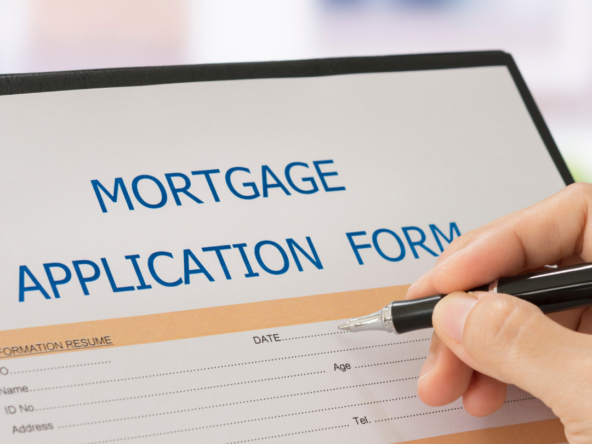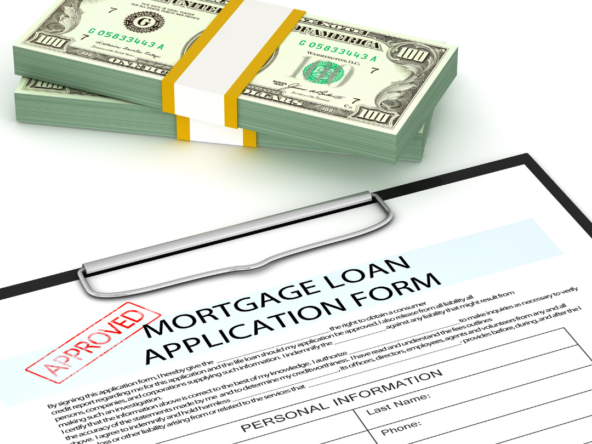Moving into a new home may signify a new milestone or a fresh start for many, but this can be a stressful thing to go through, especially if you know little to nothing about home loans and mortgages. Let us help you let off some of the burdens by walking you through some types of home loans and how to get one.
5 Types of Home Loans
Finding the correct type of home loan for you is the key to successfully buying a home. There are various types of home loans available, providing you with various options depending on your circumstances.
Conventional Loan
A conventional loan is a home loan that the federal government does not insure. It is the type of loan ideal for a primary home, vacation, or investment properties. This type of home loan is subdivided into two categories:
- Conforming Loan – These are loans with sums within the FHFA’s (Federal Housing Finance Agency) guidelines.
- Non-conforming Loan – On the other hand, non-conforming loans are mortgage loans that do not fall within limits and do not meet the guidelines set by the FHFA.
There are several pros and cons for this home loan type. Here are some of the gains and drawbacks of conventional mortgage loans:
Advantages of Conventional Loans
- Interest rates may be higher, but its overall borrowing costs are lower compared to other types of home loans.
- If your loan is backed by the Federal National Mortgage Association or Federal Home Loan Mortgage Corporation, you can pay as little as a 3 percent down payment.
Disadvantages of Conventional Loans
- Conventional loans may require higher FICO scores of 620 or higher compared to other home loan types.
- Compared to government loans, conventional loans may also require a higher down payment.
- The debt-to-income ratio needed for this type of loan should also be lower and couldn’t be higher than 45% – 50%
Jumbo Loan
Jumbo loans are conventional home loans that have non-conforming loan limits. These are more common among high-cost areas. These are loans that wealthy homebuyers get due to the prices of the high-end homes they purchase. Just like the conventional loan, it has its pros and cons:
Advantages of Jumbo Loans
- It can be used to borrow money to buy homes in high-cost areas.
- Due to jumbo loan borrowers having an excellent credit score, interest rates for this loan type tend to be competitive.
- Interest rates are comparable to those on conventional loans.
- For a more expensive home, you can borrow more.
The disadvantages of Jumbo Loans
- A down payment of at least 10% to 20% is required;
- A FICO score of 700 or greater is typically required, though some lenders may accept a score of 660.
- A DTI ratio of more than 45 percent is prohibited.
- You must show that you have considerable assets in cash or savings accounts (usually 10% of the loan amount).
Government-Insured Loans
Government-insured loans, as the name implies, are backed by the federal government. It ensures that the borrower will pay the Government.
Government agencies insure loans backed by the government. Because the insured entity pays the bill if you default, these loans are less hazardous for lenders. If you can’t acquire a traditional loan, you might be able to get a government-backed loan. When lenders mention government-backed loans, they’re talking to three different types of loans: FHA, VA, and USDA.
Each government-backed loan has its own set of standards to complete to qualify, as well as its own set of advantages, but if you qualify, you may be able to save money on interest or down payment.
The Advantages of government-backed loans
- We can help you finance a home even if you don’t qualify for a conventional loan.
- Credit criteria are less stringent.
- There is no requirement for a significant down payment.
- Both return and first-time shoppers can take advantage of this offer.
The disadvantages of government-insured loans
- Mortgage insurance premiums on FHA loans are required and cannot be canceled in specific circumstances.
- Overall borrowing costs may rise.
- Depending on the loan type, expect to present additional evidence to confirm eligibility.
Who should be the lucky recipient?
If you don’t pass for a conventional loan because of a lack of cash savings or poor credit, government-insured loans are a good option. VA loans offer the best terms and flexibility for qualifying borrowers compared to other loan forms.
Fixed-Rate Mortgage
A fixed-rate mortgage has a settled interest rate throughout the whole term of the loan. Although the amount you pay each month may fluctuate owing to changes in local tax and insurance rates, fixed-rate mortgages provide you with a highly predictable monthly payment.
If you live in your “forever home,” a fixed-rate mortgage might be a better option. A fixed interest rate helps you budget and prepare for the long run by giving you a better knowledge of how much you will pay each month for your mortgage payment.
The advantages of Fixed-rate mortgages
- Throughout the loan’s term, the monthly principal and interest payments remain the same.
- Other monthly expenses can be budgeted more precisely.
The disadvantages of Fixed-rate mortgages
- With a longer-term loan, you’ll usually have to pay more interest.
- The interest rates on fixed-rate mortgages are often higher than those on adjustable-rate mortgages. (ARMs)
Who should be the lucky recipient?
A fixed-rate mortgage offers monthly payments consistency if you plan to stay in your house for at least seven to ten years.
Adjustable-Rate Mortgage
Unlike fixed-rate loans, adjustable-rate mortgages feature variable interest rates that fluctuate according to market conditions. Many ARMs feature a fixed interest rate for the first few years before switching to a variable rate for the balance of the term. Look for an ARM with a ceiling on how much your interest or monthly mortgage rate can rise, so you don’t get into financial difficulties when the loan resets.
The advantages of adjustable-rate mortgages
- In the first few years of homeownership, a lower fixed rate is available.
- It can help you save a lot of money on interest payments.
The disadvantages of adjustable-rate mortgages
- Mortgage payments may become expensive, resulting in a default on loan.
- In a few years, home values may drop, making it more difficult to refinance or sell before the loan resets.
Who should be the lucky recipient?
Before having an ARM, you must be prepared with a certain level of risk. An ARM could save you a lot of money on interest payments if you don’t plan to stay in your house for more than a few years.
Process of Getting a Home Loan
Applying for a mortgage is an exciting first step toward owning your dream house. With our step-by-step guide to the house loan process, you won’t be overwhelmed. While there may be slight variances amongst lenders, the overall approach outlined here will be the same for all. Following the steps detailed below will ensure a smooth and stress-free home loan application process.
- Complete the loan application and attach the required documents.
- Pay the Processing Fee
- Discussing with the bank
- Documents’ Evaluation
- The Approval/Sanctioning Process
- Processing Of The Offer Letter
- Legal Check After Processing The Property Papers
- Completing a technical inspection and a site assessment
- The Final Loan Agreement
- Signing the Agreement
- Disbursement of the Loan
Important Points to Remember
- Look for the banks that offer the most affordable house loans.
- Before beginning the process of obtaining a house loan, carefully review the bank’s eligibility conditions.
- Keep all of your identification, residence, and employment proofs, as well as any other pertinent information, on hand.
- Do not falsify any of the documents since this will result in harsh consequences.
- Carry the original paperwork with you to the face-to-face appointment with the bank representative.
- Just because an applicant qualifies for a house loan doesn’t guarantee they can borrow more money.
- Interest rates can be negotiated. As a result, make the most of this opportunity.
- In processing the loan, reality check, site estimation, and other administrative services are charged separately.
- During the appraisal and verification procedure, do not skip any steps.
- Before contracting any loan documents, make sure you read them well.
- Once the loan is approved, the original property papers are handed over to the bank and remain with them until the debt is fully repaid.
- The procedure of getting a house loan typically takes around two weeks if the documents given by the applicant are valid.
Consider your financial status carefully before proceeding with any mortgage. Examine your circumstances and requirements to determine which forms of mortgage loans are most likely to help you in achieving your objectives.
If you are ready to take the next step in your home buying process, call the experts at Wallenpaupack Realty today.








